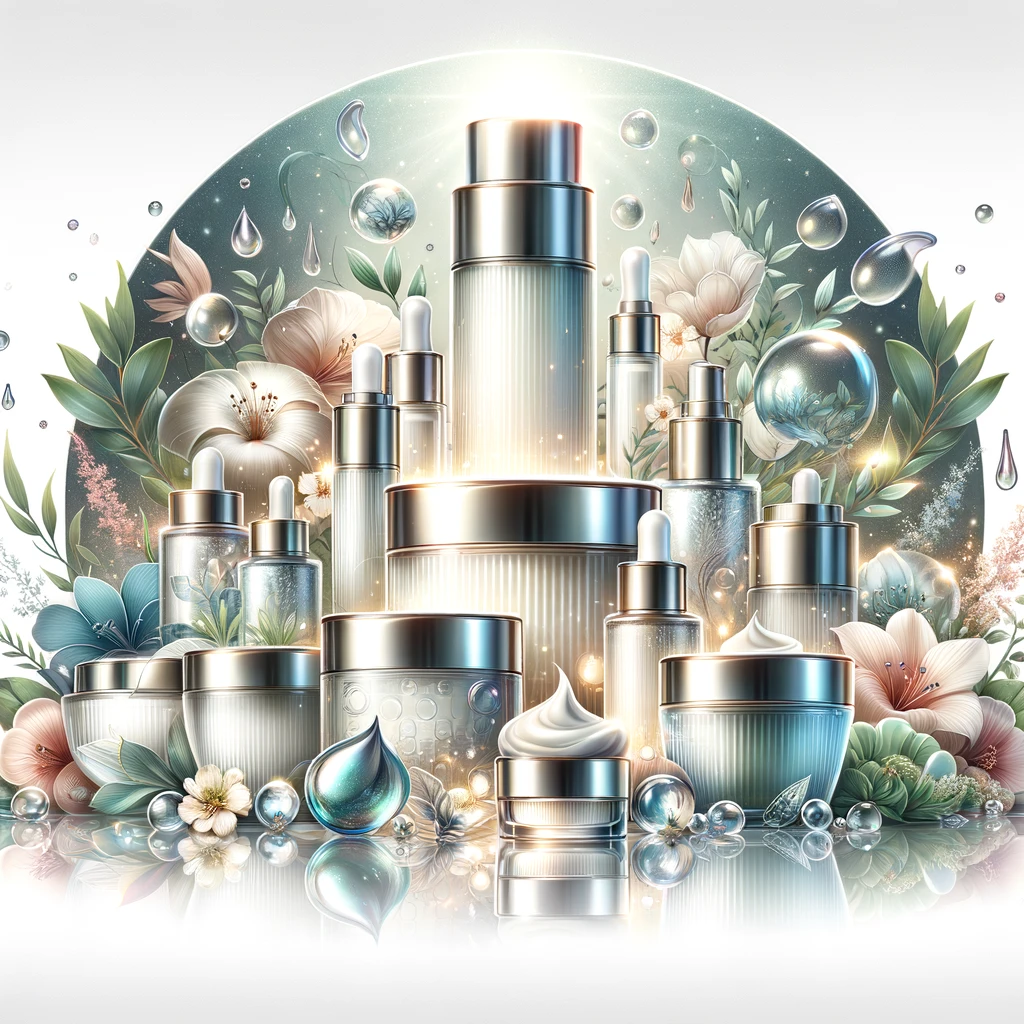
Key Takeaways
- Rest and sleep are essential for postpartum recovery. Nap when your baby naps, create a relaxing bedtime routine, and ask for help at night.
- Eating well and staying hydrated support postpartum recovery. Eat small, balanced meals and snacks, choose easy-to-prepare foods, and drink plenty of water and fluids.
- Stay connected and socialize to combat feelings of isolation. Reach out to loved ones, join support groups, and make new friends who are also new mothers.
- Pamper yourself and treat yourself to boost your self-esteem and happiness. Use natural ingredients for at-home pampering, engage in simple pleasures, buy something that makes you feel good, and reward yourself for self-care activities.
New Mom Self-Care: Postpartum Essentials
Congratulations on welcoming your little one into the world! You have just gone through one of the most amazing and life-changing experiences of your life. You deserve all the love and appreciation for bringing a new life into this world.
But as you adjust to your new role as a mother, you may also face some challenges and difficulties. You may feel exhausted, overwhelmed, anxious, or depressed. You may struggle to balance your own needs with the needs of your baby. You may feel guilty for taking time for yourself or asking for help.
We understand how you feel. We know that being a new mother is not easy. That’s why we want to share with you some postpartum self-care tips that can help you take care of yourself and your baby. Self-care is not selfish. It is essential for your physical, mental, and emotional well-being. It can help you heal faster, cope better, and enjoy motherhood more.
Here are some postpartum self-care essentials for new mothers:
1. Rest and sleep
Rest and sleep are vital for your recovery and health. They can help you heal from the physical and emotional effects of childbirth, boost your immune system, and prevent postpartum complications. They can also improve your mood, energy, and mental clarity.
But we know that getting enough rest and sleep can be challenging with a newborn baby. Your baby may wake up frequently at night, or you may have trouble falling asleep or staying asleep. You may also feel tempted to use your baby’s nap time to catch up on chores, work, or social media.
That’s why we suggest you to:
- Nap when your baby naps. Even a short nap can make a big difference in how you feel.
- Go to bed early and wake up late. Try to get at least 7 hours of sleep per night, if possible.
- Ask your partner, family, or friends to help you with the baby at night. You can take turns feeding, changing, or soothing the baby, or you can pump breast milk and let someone else bottle-feed the baby.
- Create a relaxing bedtime routine for yourself and your baby. Avoid caffeine, alcohol, nicotine, and screens before bed. Dim the lights, play some soothing music, or read a book. Give your baby a warm bath, a massage, or a cuddle.
- Make your bedroom comfortable and conducive to sleep. Use curtains, blinds, or an eye mask to block out the light. Use earplugs, a fan, or a white noise machine to drown out the noise. Adjust the temperature, bedding, and pillows to your preference.
2. Eat well and stay hydrated
Eating well and staying hydrated are important for your postpartum recovery and health. They can help you replenish your energy, nutrients, and fluids, especially if you are breastfeeding. They can also support your hormonal balance, digestion, and immunity.
But we know that eating well and staying hydrated can be difficult with a newborn baby. You may not have the time, energy, or appetite to cook or eat. You may crave for junk food, sweets, or caffeine. You may forget to drink water or other fluids.
That’s why we suggest you to:
- Eat small, frequent, and balanced meals and snacks throughout the day. Include a variety of foods from all the food groups, such as whole grains, fruits, vegetables, lean protein, dairy, and healthy fats.
- Choose foods that are easy to prepare, eat, and digest, such as soups, salads, sandwiches, smoothies, oatmeal, yogurt, nuts, and dried fruits.
- Avoid foods that are spicy, greasy, or gassy, as they may upset your stomach or your baby’s stomach, if you are breastfeeding.
- Drink plenty of water and other fluids, such as milk, juice, herbal tea, or soup. Aim for at least 8 glasses of fluids per day, or more if you are breastfeeding or sweating a lot.
- Keep a water bottle and some healthy snacks handy, such as in your bedroom, living room, or diaper bag. You can sip and nibble on them whenever you feel hungry or thirsty.
- Ask your partner, family, or friends to help you with grocery shopping, cooking, or meal delivery. You can also stock up on frozen, canned, or ready-made foods that you can heat and eat in a pinch.
3. Stay connected and socialize
Staying connected and socializing are important for your postpartum recovery and health. They can help you feel less isolated, lonely, or depressed. They can also provide you with emotional support, practical advice, and a sense of belonging.
But we know that staying connected and socializing can be challenging with a newborn baby. You may not have the time, energy, or opportunity to talk to your friends or family regularly. You may also feel shy, guilty, or overwhelmed by their questions or comments.
That’s why we suggest you to:
- Reach out to your loved ones regularly through phone calls, video calls, texts, emails, or social media. Let them know how you are doing and what you need from them.
- Join a support group for new mothers in your area or online. You can share your experiences, feelings, and tips with other mothers who are going through the same thing as you.
- Make new friends who are also new mothers or have recently given birth. You can meet them through online forums, apps, events, or classes.
- Seek professional help if you feel depressed, anxious, or suicidal. There is no shame in asking for help when you need it. You can talk to your doctor, midwife, counselor, therapist, or helpline.
4. Pamper yourself and treat yourself
Pampering yourself and treating yourself are essential for your postpartum recovery and health. They can help you relax, rejuvenate, and boost your self-esteem. They can also make you feel more confident and happy.
But we know that pampering yourself and treating yourself can be difficult with a newborn baby. You may not have the money, time, or access to beauty products or services that you used to enjoy before pregnancy.
That’s why we suggest you to:
- Pamper yourself at home by using natural ingredients such as honey, yogurt, oatmeal masks, coconut oil, etc., on your skin and hair.
- Treat yourself with simple pleasures such as reading a book, listening to music, watching a movie, playing with your baby, etc., that make you happy.
- Buy yourself something that makes you feel good about yourself such as a new outfit, a pair of shoes, a necklace, etc., that fit your style and budget.
- Reward yourself for doing something good for yourself such as completing a task, reaching a goal, overcoming a challenge, etc., by doing something fun for yourself such as ordering food online, taking a nap, getting a massage, etc.
5. Learn something new
Learning something new is beneficial for your postpartum recovery and health. It can help you stimulate your brain, improve your memory and concentration skills and enhance your self-confidence and identity. Engaging in new learning experiences can also provide a sense of achievement and purpose, which is particularly important during the postpartum period when you might be adjusting to your new role and lifestyle.
However, finding the time and resources to learn something new can be a challenge when caring for a newborn. You may feel like you don’t have the energy or focus to engage in learning activities, or you might struggle to find topics that interest you.
To overcome these challenges, here are some suggestions:
- Start with Short, Manageable Learning Sessions: Choose activities that can be broken down into small, achievable goals. This could be as simple as reading a few pages of a book each day, watching a short tutorial video, or even listening to a podcast on a topic of interest.
- Explore Online Courses and Workshops: There are numerous free or affordable online platforms offering courses on a wide range of subjects. From cooking classes to digital marketing, you can find courses that fit your interests and schedule.
- Join Community Classes or Groups: Look for local community centers or libraries that offer classes or groups. These can be great places to learn something new while also connecting with other new mothers.

6. Learn something new
Learning something new is beneficial for your postpartum recovery and health. It can help you stimulate your brain, improve your memory and concentration skills, and prevent boredom and depression. It can also make you feel more confident and happy.
But we know that learning something new can be difficult with a newborn baby. You may not have the time, energy, or opportunity to pursue your hobbies or interests. You may also feel overwhelmed by the amount of information or choices available.
That’s why we suggest you to:
- Learn something that is easy to do at home, such as a new language, a musical instrument, a craft, or a skill.
- Learn something that is relevant to your life as a mother, such as how to breastfeed, how to soothe your baby, how to deal with common baby issues, or how to plan for your next pregnancy.
- Learn something that is fun and enjoyable, such as a game, a puzzle, a trivia quiz, or a joke.
- Learn something that is inspiring and uplifting, such as a quote, a story, a poem, or an image.
7. Be kind to yourself
Being kind to yourself is essential for your postpartum recovery and health. It can help you accept yourself, love yourself, and forgive yourself. It can also make you feel more positive and hopeful.
But we know that being kind to yourself can be challenging with a newborn baby. You may feel guilty for not doing enough, not being good enough, or not meeting your own expectations. You may also compare yourself to other mothers who seem to have it all together.
That’s why we suggest you to:
- Be kind to yourself by speaking positively about yourself and avoiding negative self-talk.
- Be kind to yourself by acknowledging your achievements and celebrating your milestones.
- Be kind to yourself by treating yourself with compassion and understanding.
- Be kind to yourself by seeking support from others who care about you.
Conclusion
Being a new mother is one of the most rewarding but also challenging experiences of life. You deserve all the love and appreciation for bringing a new life into this world.
But you also deserve some self-care during this time. Self-care is not selfish. It is essential for your physical, mental, and emotional well-being. It can help you heal faster, cope better, and enjoy motherhood more.
We hope these postpartum self-care tips have inspired you to take care of yourself and your baby. Remember, you are not alone in this journey. We are here to support you along the way.
We wish you all the best in this wonderful adventure of motherhood!
FAQ
- Why is self-care important for new mothers?
Self-care is important for new mothers because it helps with their physical, mental, and emotional well-being. It can aid in healing, coping, and enjoying motherhood more.
- How can I get enough rest and sleep with a newborn baby?
Nap when your baby naps, go to bed early and wake up late, ask for help at night, create a relaxing bedtime routine, and make your bedroom conducive to sleep.
- How can I eat well and stay hydrated with a newborn baby?
Eat small, frequent, and balanced meals and snacks, include all food groups, choose easy-to-prepare foods, drink plenty of water and other fluids, keep healthy snacks handy, and ask for help with grocery shopping and cooking.
- How can I stay connected and socialize as a new mother?
Reach out to loved ones regularly through various communication channels, join a support group for new mothers, make new friends who are also new mothers, and seek professional help if needed.



